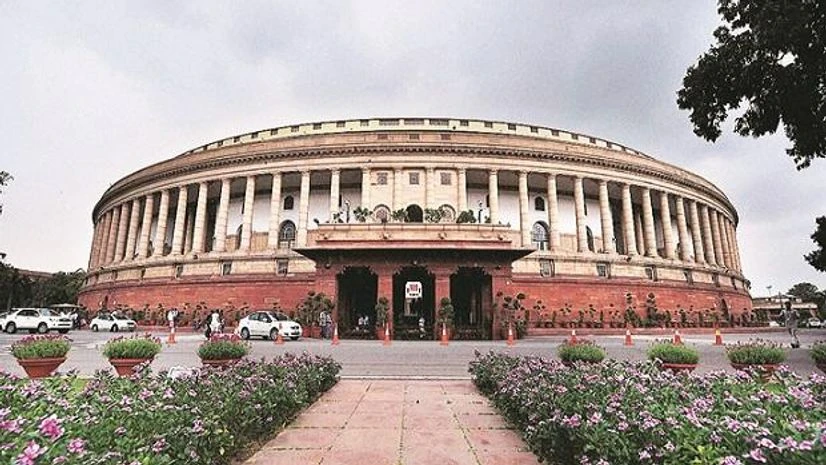Sudan owes ONGC Videsh Ltd (OVL) a total of USD 560 million in unpaid oil dues and cost of pipeline built by the Indian firm built for the African nation, the government told Parliament on Monday.
OVL, the overseas arm of state-owned Oil and Natural Gas Corporation (ONGC), had a 25 per cent stake in Block 2A&4 in Sudan. Sudan had since 2011 not paid OVL and partners for oil it bought from the block.
"The amount due to OVL on account of over lifting of crude oil under the Exploration and Production Sharing Agreement (EPSA) is USD 339.75 million and under sale and purchase agreement (SPA) is USD 90.94 million, which amounts to USD 430.69 million in total," Minister of State for Petroleum and Natural Gas Rameswar Teli said in a written reply to a question in Rajya Sabha.
OVL had also not been paid for the 741-km-long pipeline it built from Khartoum to Port Sudan.
The company initiated arbitration proceedings against the Government of Sudan to recover the dues and has terminated the Exploration and Production Sharing Agreement (EPSA).
"Under Sovereign Guarantee- Pipeline Contract Agreement (SG-PCA) arbitration between OVL and Sudan Government, OVL has raised a demand of USD 98.94 million principal amount along with interest/damages for unpaid and delayed installments from the Sudan government," he said.
More From This Section
The African nation has admitted before the arbitration tribunal that it owes about USD 131 million to OVL in pipeline dues.
"The Sudan government, in its statement of defence, has admitted about the unpaid instalments amounting USD 98.94 million and interest of USD 31.0 million payable on unpaid and delayed installments," the minister said.
The arbitration tribunal at the International Court of Justice in Hague is hearing the matter.
"The outcome of the arbitrations are contingent on the Hon'ble Permanent Court of Arbitration, based outside India," he said.
OVL had in 2003 acquired 25 per cent interest in the Greater Nile Oil Project in Sudan. China's CNPC holds a 40 per cent stake in the project, while Malaysia's Petronas has 30 per cent and Sudapet of Sudan owns the remaining 5 per cent.
GNOP consisted of the upstream assets of on-land Blocks 1, 2 and 4 spread over 49,500 sq km in the Muglad Basin, located about 780 km South-West of the capital city of Khartoum in Sudan.
The crude oil produced from the oil field of GNOP is transported through a 1,504-km pipeline to Port Sudan at the Red Sea.
Upon the secession of South Sudan from Sudan in July 2011, the contract areas of Blocks 1, 2 and 4 which straddle between Sudan and South Sudan was split with a major share of production and reserves are now situated in South Sudan.
Post-secession, as the Government of Sudan's share of total production from Sudan was not sufficient to meet the requirements of local refineries, foreign firms were asked to sell their share of crude oil to it.
However, the payment of dues on account of crude oil purchased by the Government of Sudan has not been received.
OVL had along with state-owned Oil India Ltd constructed and financed a 741-km multi-product pipeline from the Khartoum refinery to Port Sudan for USD 194 million.
OVL's share of the project cost was 90 per cent, while the rest was borne by OIL.
The pipeline was handed over to the government of Sudan in October 2005. The lump-sum price, together with lease rent was required to be paid to OVL in 18 equal half-yearly installments effective from December 2005.
The project cost and rental totalled USD 254 million, which equated to 18 half-yearly installments of USD 14.135 million each starting from December 30, 2005. The company got a total of 11 installments (USD 155.48 million) till December 2010 and the balance seven installments amounting to USD 98.94 million remained outstanding.
The remaining seven installments due from June 30, 2011, to June 30, 2014, are yet to be released.
OVL, whose share of investment in the project was USD 158.01 million, has been following up for the realisation of USD 98.94 million from the government of Sudan at various levels but hasn't succeeded so far.
This prompted the company to drag Sudan to arbitration.
Sudan had denied ONGC and partners an extension of licence to operate block 2B after the initial contract expired in November 2016.
(Only the headline and picture of this report may have been reworked by the Business Standard staff; the rest of the content is auto-generated from a syndicated feed.)

)
